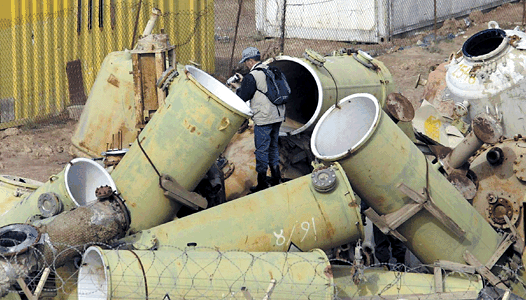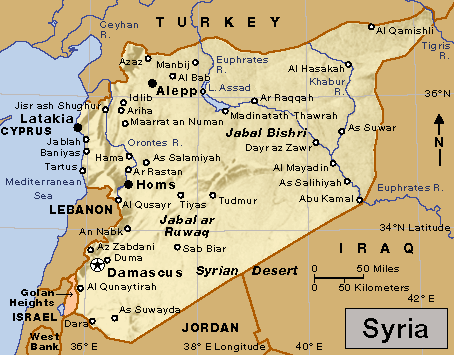Pentagon Confirms U.S. Soldiers Exposed to Chemical Weapons
Friday, November 7th, 2014November 7, 2014
The United States Department of Defense yesterday confirmed that more than 600 American service members had been exposed to chemical weapon agents while serving in the Iraq War (2003-2011). The New York Times in October had published a detailed report about the exposures in which the writers suggested that the Defense Department had tried to conceal the facts.
In 2003, the administration of President George W. Bush accused Iraqi dictator Saddam Hussein of actively developing weapons of mass destruction, including chemical weapons. The presence of such weapon programs was the administration’s primary justification for invading Iraq.

A United Nations inspector in December 2002 examines dismantled equipment used during the 1980′s and 1990′s in Iraq’s chemical weapons program. American soldiers in Iraq were exposed to chemical agents left over from the Iran-Iraq War of the 1980′s. (Reuters/Getty Images)
After the invasion, United Nations weapons inspectors failed to find any evidence of active chemical or nuclear weapon programs. However, American soldiers found many chemical weapons that had been discarded after Iraq’s war against Iran in the 1980′s. Some of these dormant weapons had been manufactured with the help of western countries, including the United States, which at the time supported Saddam Hussein in his war against Iran.
While disposing of these old munitions in Iraq in the wake of the invasion, a number of U.S. soldiers were exposed to such chemical agents as mustard gas and sarin. Others were exposed during attacks in which the insurgent groups al-Qai`da in Iraq used bombs loaded with Hussein’s discarded chemical agents. In The Times October article, the writers reported that U.S. military officials in Iraq had failed to adequately address these injuries and in some cases ordered victims not to discuss that they had been exposed to deadly agents. Yesterday, the Department of Defense confirmed the validity of The Times investigation and vowed to find and help affected veterans.
Additional World Book articles:
- Chemical Weapons Convention
- Islamic State
- Iraq 2002 (a Back in Time article)
- Chemical and Biological Terror (a special report)
- The War in Iraq: the Military Campaign and Aftermath (a special report)



